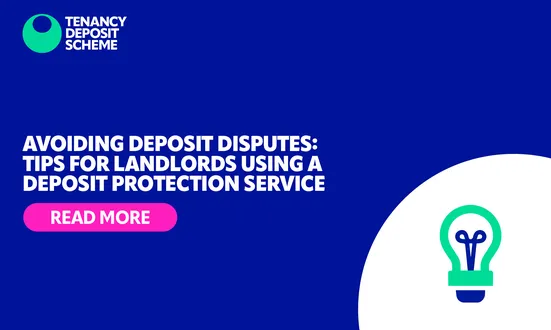Plans to introduce new energy efficiency rules have been around for several years now, with the Government consultation on plans to introduce the minimum EPC rating of C closing in January 2021. With an update expected by the end of the year, Ben Beadle, Chief Executive of the National Residential Landlords Association (NRLA) says now is the time for the Government to commit to a revised timeline, along with a package of financial support for landlords.
It is now more than two years since the Government consulted on plans requiring private homes in the private rented sector to have an Energy Performance Certificate (EPC) rating of at least a C.
Under the plans, landlords whose homes do not meet this standard will be unable to rent them out until energy efficiency improvements – up to the value of £10,000 per property – have been made.
The original consultation documents suggested the rules would apply to all new tenancies from 2025, and all others from 2028.
Serious reservations
This first date is now just two years away, and it has been clear to us for some time that these deadlines are completely unachievable. We also have serious reservations about some of the detail included in the proposals.
This is not because landlords aren’t committed to energy efficiency, quite the opposite. Energy efficient homes are more economical to run, which in turn makes them more attractive to tenants.
What concerns us – in addition to the lead in times – is the potentially devastating financial impact on some landlords, not least during the current economic climate and at a time of supply crisis when many are considering leaving the sector altogether.
Under the plans as they stand, landlords would be expected to fork out up to £10,000 per property for improvement works.
Contrary to reports in the media, the majority of landlords are not ‘fat cats’ profiteering of hard-pressed tenants, with almost 70% basic rate taxpayers who would struggle to pay these bills.
The figure of £10,000 also has a different value, dependant on where in the country you and your portfolio are based.
If you have a property in central London and are charging market rent, £10,000 is a lot of money.
However, if you are in somewhere like the North East, where property values and rents are significantly lower, it’s a staggering amount.
The plan also fails to recognise that the private rented sector contains some of the most difficult homes to retrofit, with recent figures suggesting almost four in 10 properties currently have a rating that falls below the required ‘C’.
Relaxing the pace
There has been some positive news, however, with Housing Secretary Michael Gove suggesting the Government should “relax the pace” of proposed reforms in a newspaper interview earlier this summer.
I have also personally raised the issue in meetings with the Minister for Energy Efficiency, Lord Callanan and Mr Gove, with the Housing Secretary’s latest statement suggesting the message is getting through. He was quoted in The Telegraph as saying: “My own strong view is that we’re asking too much too quickly.
“We do want to move towards greater energy efficiency, but just at this point, when landlords face so much, I think that we should relax the pace that’s been set for people in the private rented sector, particularly because many of them are currently facing a big capital outlay in order to improve that efficiency.”
I was invited to Mr Gove’s housing statement just a day after he made this statement, and took the opportunity to quiz him further. He reiterated his comments, saying that while there is a ‘specific timetable’ in place, this is something that he believes ‘needs relaxing’.
This is a step in the right direction. But landlords need more support.
What does the NRLA want?
Instead of a blanket cap on the cost of improvement works the NRLA wants the amount landlords should be expected to contribute to be linked to average market rents in any given area.
Under the NRLA’s proposals, this would mean the amount a landlord would need to pay would taper, taking into account different rental values (and by implication, property values) across the country.
Alongside this, we are calling for a package of fiscal measures to support investment. This should include the development of a new tax allowance for landlords who are undertaking works towards reaching Net Zero.
Now is the time for the Government to go back to the drawing board to come up with sensible workable proposals, with the appropriate financial package behind them and a definitive timetable produced to avoid landlords being left in limbo.
More information on the outcome of the consultation is expected from Government by the end of the year and we are keen to work with the Government to develop proposals that are fair and workable for all.
More information
To read more about the NRLA’s proposals on Energy Efficiency click here.
For more information on how to join the association click here.
The NRLA runs a programme of regional meetings and events both online and in person to build landlord communities on the ground and bring about change on a local level. To get in contact with your local representative and find out more about what’s going on in your area click here.
About the author

Ben Beadle is chief executive of the National Residential Landlords Association (NRLA), the UK’s largest trade body for landlords.
A landlord himself since the age of 20, Ben started out as property manager before working his way up through the ranks at Tenancy Deposit Scheme (TDS).
He was then Operations Director at property management business Touchstone before overseeing the merger of the National Residential Landlords Association (NLA) and Residential Landlords Association (RLA) to create the new trade body earlier this year.
His key aims as head of the organisation are to strengthen the voice of landlords in Westminster and Cardiff, to improve the reputation of landlords in the media and to support members through information, training and accreditation.
NRLA: The NRLA updates landlords on all the latest legislation changes affecting the sector and offers expert advice, training and other exclusive services and benefits.
The views expressed in this content are solely those of the author alone and do not necessarily represent the views of TDS, its officers, or employees.
Other news stories


